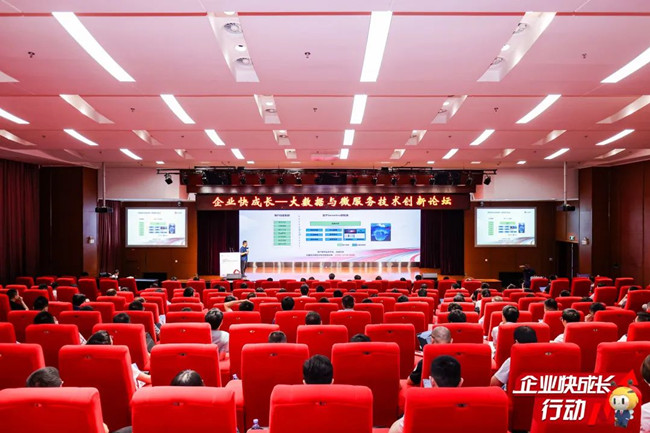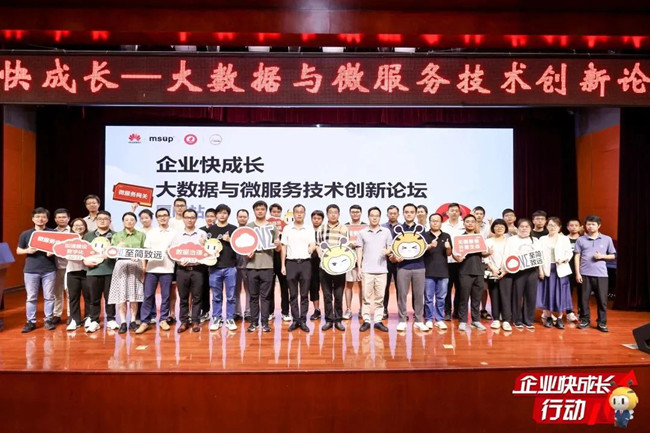A lecture on big data technology innovation, hosted by the Xiamen Torch Academy, was held on June 16 in Xiamen, Fujian province.
The event brought together CTOs and technology experts from renowned companies such as Huawei Cloud, one of China’s top cloud service vendors; the video sharing and streaming site Bilibili; and Zhenai.com, a popular matchmaking application website in China.
Through the presentation of technical cases, they delved into the building of big data platforms and the evolution of microservices. Their discussions focused on ways to develop and govern data based on these platforms, aiming to assist architects and technical managers in finding the best measures for building lightweight big data platforms.

A lecture on big data technology innovation is held on June 16 in Xiamen, Fujian province. [Photo/WeChat account: Xiamen Torch Academy]
The event began with a welcome speech by Sun Fengqiang, CTO of Huawei Cloud Fujian, who provided a brief introduction to Huawei Cloud's data empowerment initiatives for enterprises in the province.
Wang Lue, a big data technology expert from Huawei Cloud, shared his insight on building a modern data stack.
Data is the core driving force of the digital economy, and enterprises need to motivate business intelligence through data, he said.
Wang also shared Huawei Cloud's full stack big data infrastructure, citing cases of assisting mengxiang.com in its intelligent operations to help the company tap into new e-commerce values.
Zhang Jing, senior technical director of Bilibili, shared his experience in building big data development and governance platforms driven by data governance.
Zhang emphasized the integration of the platform and business, using a data-driven methodology to promote platform construction, and operating data rather than it just serving as a tool.
He also stressed the importance to evaluate requirements based on quality, cost, and security priorities.
Application modernization refers to the process of upgrading traditional applications using cloud-native, artificial intelligence, serverless, and other technologies to enhance customer experience, business agility, and innovation capabilities, said Mao Xuepeng, senior product manager at Huawei Cloud, who also introduced Huawei’s advantages in microservices and serverless, along with Huawei Cloud's application modernization solutions.
Peng Wanliang, CTO of Zhenai.com, shared the microservice governance system of his company. A dual-cloud, dual-active architecture can effectively reduce risks associated with a single cloud environment while improving cloud elasticity and resource utilization, according to Peng.
He summarized the core principles of Zhenai.com's microservice architecture evolution, which highlights continuous business development, architecture iteration, targeted problem-solving, and architectural adjustments.

Participants of the event pose for a group photo. [Photo/WeChat account: Xiamen Torch Academy]
More than 100 industry insiders, including technical directors, managers, and architects from high-tech companies, participated in the event, engaging in discussions and knowledge sharing.